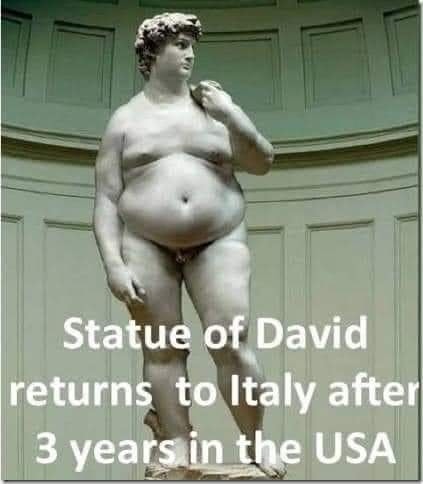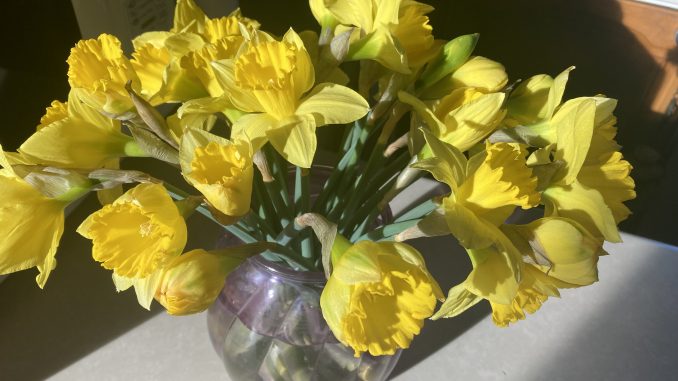

It’s been a tragic week in so many ways, babies, children, young and old homeless, no heat, no food, facing death and destruction. The anniversary of the war in Ukraine, more earthquakes in Turkey and Syria, brutal shooting of John Caldwell and the ongoing protocol row. There is such sadness and fear stalking the world.
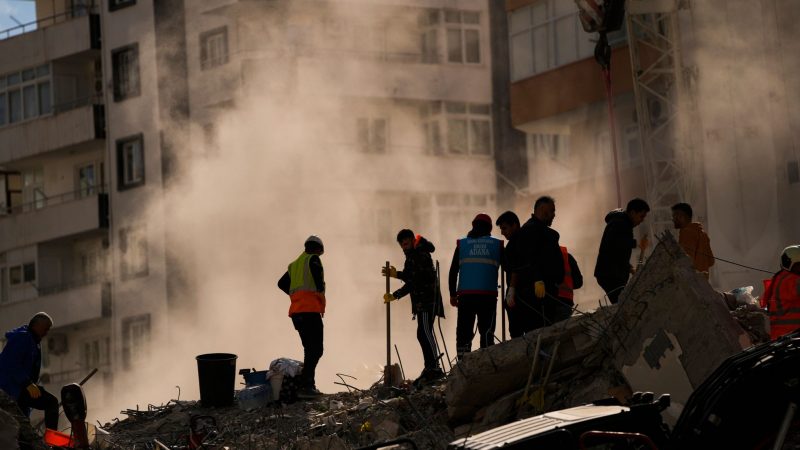
Short blog today, sliced my hand with a scalpel on Friday teatime, eventually to the Mater A&E and after a wait of five hours got stitched up by two extremely pleasant young women doctors. Home by 3 a.m. after an interesting few hours. Staff have a lot to put up with over night facing the sadness of illness and injury and those the worse of drink. Sometimes when there’s a long time between patients being called into the inner sanctum I now know it’s important to realise that, from the other side of the emergency area, there are patients being brought in via ambulance and they have to be attended to. My recommendation is a book, some company if possible , a packet of biscuits and a drink. I had perfume in my bag and a tube of foundation which came in useful when I was feeling sorry for myself! However, I had a notebook and a pen so I was able to scribble away is it turned out it wasn’t wasted time. Anyway typing isn’t all that easy so nice and short this week!
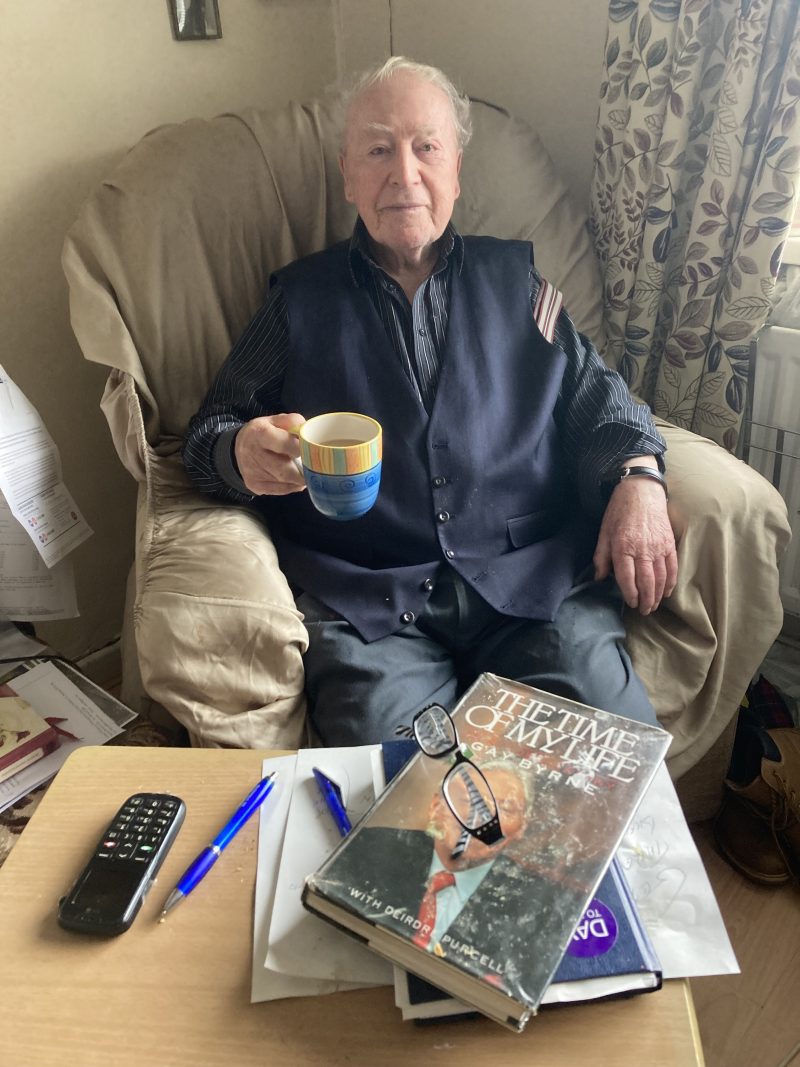
THE VOICE OF THE PEOPLE
When you talk with Louis MConnell he’ll take you back over 70 years to a time when the newspaper industry in Northern Ireland was thriving. Every town had it’s own paper, It was a time of ink, presses and bales of paper, words like slug, stone, flange and lead, no computerisation to speed the process.
Louis worked his way from provincial papers to city editions, from travel writing to broadcasting. “One of the highlights was to be asked to do an RTE broadcast from back stage at River dance in the King’s Hall nearly 30 years ago. An amazing night.” Rivalled he says only by the night he met his late wife Mona at a dance in the Orpheus Ballroom!
I remember that night in the King’s Hall. A group from Ulster Television was invited to the show and it was one of those nights you never forget. What struck me was the number of young politicians (many now grown men and women) from all shades and backgrounds sitting together and then repairing to the King’s Head for a noisy party. Music certainly unites people even for an evening. I think it was in San Francisco when there was unrest and young activists were on the march. Someone decided to play classical music at top volume and it worked, they stopped in their tracks and listened – the heat went out of the situation and calm prevailed. The power of music.
Born in Pomeroy Co. Tyrone Louis was only a teenager when his dad suggested he should get a job in a newspaper. “Best advice I’ve ever had, journalism has taken me round the world and back.”
Proving that once a journalist always a journalist even at 89 years of age Louis is still researching and writing, gathering stories of people and events for the Media History Collection at the Dublin City University library archive dedicated to preserving the history of communication in Ireland, especially in the world of print and broadcasting, “It’s important to preserve this history for future generations,” he says, “as well as todays journalists wanting to source specific material.”
The Early Days

It brings back memories for Louis. He went to school with country singer Philomena Begley, played in an accordion band before 60,000 people in Croke Park, had a fine singing voice and was a notable Irish dancer; having an interest in so many aspects of local life stood him in good stead when, at 17 he got a job in the Dungannon Observer. Initially he was a proof reader responsible for spotting grammatical errors, misspellings, fake facts before the copy moved on to the sub-editor for more scrutiny. “Stories came in from all arts and parts and they were relevant to the locals, if John Maguire bought a new turf spade it was in the paper with a picture of beaming John.”
Progress was swift, he was moved to Magherafelt, transferred to Cookstown and then Armagh. “I loved Armagh, there were seven reporters and we were kept busy in the ecclesiastical capital with two bishops Catholic alongside Protestant. As a reporter I was covering everything that was going but sport was my special area although you couldn’t avoid politics. I remember riots in the 60s when the police baton charged, it was the first time I saw blood running down a man’s face.” It wasn’t the last time.
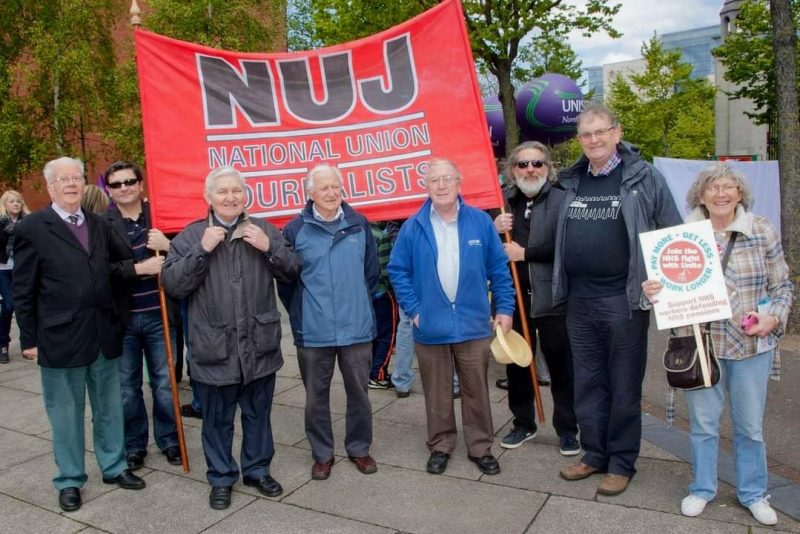
One of his regular dates was covering the courts. “I didn’t like matrimonial cases, I was young and embarrassed, much more fun was the smuggling, cattle to cigarette, alcohol to butter. Women would buy butter in the south and before the customs men boarded the train at the border they’d stuff it down the front of their skirts into their knickers, the train would be purposely held up for a while and as the butter melted it became obvious who the smugglers were!”
Although it wasn’t butter, In the 40s my uncle had an arrangement with the driver of the Enterprise train who would conceal all sorts of things in his boiler suit bring them north to unloaded in Belfast. Poor driver must have been sweltered when he was required to strap a fur coat to his burley frame!
”The best of it was on the day the court sat in Newtownhamilton and the police and customers men were there giving evidence! We all knew the boys were out working away without having to worry about getting caught”.
On The Move
He was very happy in Armagh but yet again he was to be transferred.
“Monday morning, phone call – go to the Newry office. I said ‘no’ and was fired on the spot. That’s when I first got involved in trades union business.” Today he is the much respected the long serving welfare officer of 46 years.
“But there was hope of a job. I was covering a council meeting in Armagh when a Belfast based journalist asked me to file copy for him admitting he was too drunk to attend and needed to get a piece in the following mornings paper.” From that encounter he got an introduction to the Irish News and was interviewed by four formable gentlemen. “I was still very young and the editor said we’d like you to start next Monday and this is the wage we’ll pay.” Canny Louis said he’d think about it and would they write to him laying out their conditions. “They did and I was delighted that they improved the salary offer.”
Even at this time reporters like Louis were substituting their wage by writing for other papers usually under an assumed name so they wouldn’t be found out and lose their employment. Often it paid off. “I got a job from the Financial Times Investors Chronicle for an review and got a cheque for £600.”
He moved to the Belfast Telegraph where he was writing holiday and sports supplements but there were strikes and the future was anything but secure. Fortunately he’d been noticed by a travel magazine and was invited to work for them covering stories from all over the continent and beyond. “It began with a phone call and a voice asked me could I be at Nutts Corner airport next day at 7 a.m. “Where am I going?” “Somewhere.” When he got there he was shown to the VIP area.
“And by 11 a.m. I was in a £100 seat at Monaco Grand Prix, millionaires yachts in the harbour and champaign flowing. That was life in the days when newsprint was valued and zoom had never been heard off.”
As he beavers away collecting his archive material I ask him how he’d like to be remembered. “Just as a decent fella!” No problem Louis.
